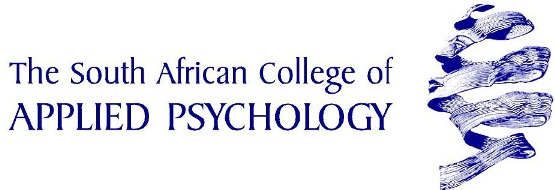Preresquisite: Counselling Methods I
Module Purpose: This module is an extension and development of Methods of Counselling 1 and provides an introduction to further major counselling theories, methods and strategies. Students will have opportunities to integrate their preferred methods of counselling and to deepen their understanding of the theory and practice of major counselling approaches. This module provides students with a critical understanding of the main counselling and psychotherapeutic approaches available today.
Module Content:
This module is an extension and development of Methods of Counselling 1 and provides and introduction to further major counselling theories, methods and strategies. Students will have opportunities to integrate their preferred method of counselling and to deepen their understanding of the theory and practice of major counselling approaches. The following methods are covered in this module.
- Phenomenological Psychology: overview of the phenomenological orientation to counselling; the principal task of phenomenology; the difference between objective and subjective reality when counselling others; the noematic and noetic foci of internationality in an experience
- Existential Therapy: the principles of existentialism; the essential givens of existential therapy; the process of existential therapy; the skills and methods pertaining to the existential wheel; a associative questions and challenges as interventions
- Person-Centred Therapy: the principles and goals of person-centred therapy; the attitudes and personal characteristics of the therapist and the quality of the client/therapist relationship as prime determinants of the outcome of the therapeutic process; the implications for using accurate empathy, unconditional positive regards and congruence in counselling; ways to promote self-actualisation
- Gestalt Therapy: the principles of Gestalt Therapy and the concept of contact and its application to the counselling context; the therapeutic goals of Gestalt Therapy, Person-Centred Therapy and Existential Therapy; various experiments in Gestalt Therapy, i.e. the empathy chair technique, guided fantasy, dream processing, the projection game and rehearsal technique
- Transactional Analysis: the assumptions and principles of Transactional Analysis; the three ego states of our personality; complementary, crossed and ulterior transactions; how Transactional Analysis can help clients change their life scripts
- Group Therapy: kinds of groups and group characteristics; stages of group development; and the inventory of personal group leadership skills
- Systematic Family Therapy: the theoretical origin of systemic family therapy; the common symbols, terms and element of systemic family therapy; common techniques used to assess a family system
- Structural, strategic and feminist approaches: the beliefs and techniques of the structural approach to family therapy; the core beliefs and focus of the strategic approach to family therapy; the core beliefs of the feminist approaches to family therapy; structural, strategic and feminist approaches to the family
- Systemic and Experiential approaches: the therapeutic frame used by the Milan systemic approach to family therapy; hypothesising, circularity and neutrality; the philosophy of the experiential approach to family therapy
- Narrative Therapy: the development of post-modern therapy; modernism and post-modernism; the therapeutic process of narrative therapy; deconstructing a narrative
- Brief Therapy: the development of brief therapy; the therapeutic attitude of time-limited therapy; solution-focused, existential time-limited and the psychodynamic perspective to brief therapy
Learning Outcomes:
- Explain the phenomenological orientation and how its philosophy underlies several counselling approaches.
- Discuss the philosophy of existential therapy.
- Discuss the principles of person-centred therapy.
- Explain and demonstrate the use of how experiments in Gestalt Therapy.
- Compare and apply the therapeutic goals associated with Gestalt Therapy, Person-Centred Therapy, Existential Therapy and Transactional Analysis.
- Discuss the principles and demonstrate techniques used in family therapy, narrative therapy and group therapy.
- Demonstrate integrity and apply ethical practices.


No comments:
Post a Comment
Note: Only a member of this blog may post a comment.